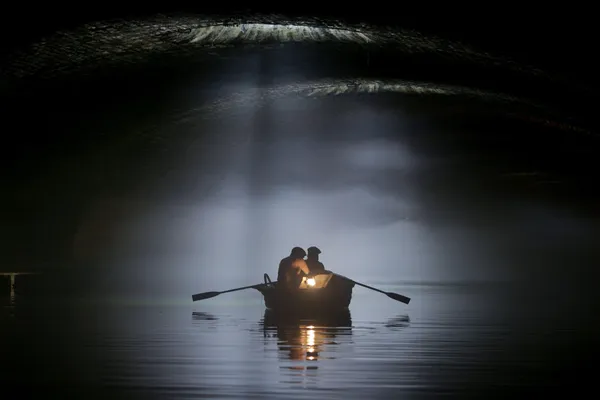Eye For Film >> Movies >> Paris Police 1900 (2021) Film Review
Paris Police 1900
Reviewed by: Donald Munro

Paris Police 1900 blends police procedural and political thriller in La Belle Epoque. But this is no beautiful city. Paris is on the cusp of a new millennium. It is an old city overburdened by its rapidly rising population. Modernity is marching through art and architecture, science and technology, politics and the streets.
The series opens with the fellatio-related death of the French President Félix Faure (Denis Ardant) in February 1899. This event, along with the Dreyfus Affair, helps plunge French politics into turmoil and threatens the continuation of the Third Republic. Meanwhile a young police detective, Antoine Jouin (Jérémie Laheurte), is drawn into the investigation of a woman's murder. Her corpse was found dismembered, stuffed in a suitcase, floating in the Seine. Events transpire to draw the detective, the president's courtesan Marguerite Steinheil (Evelyne Brochu) and the newly appointed police prefect Louis Lépine (Marc Barbé) towards the heart of the political crisis.

Most of the central characters are either historic figures such as Marguerite Steinheil and Louis Lépine, or are based on real people, such as Antoine Jouin, who is modelled on Louis-François Jouin. The actors all do a good job of breathing life into them, especially Hubert Delattre who plays Jules Guérin, the founder of the Ligue Antisémitique. He simultaneously looks like both the photographs and the caricatures of the man. Jeanne Chauvin (Eugénie Derouand), the second French woman to become a lawyer, is central not only to the narrative but also to the major thematic drive of the series.
Subtextually Paris Police 1900 is about the modernisation of France. La Belle Epoque saw many changes. The electrification of Paris; the Gesamtkunstwerk principle and the explosion of Art Nouveau with the curvilinear works of Mucha and his like reaching a mass audience; the changing roles of women (though they didn't get the vote until 1945); and the emergence of new political ideologies ranging from anarchism to proto-fascism. Social change is embodied by the characters of Guérin and Chauvin. Change is also reflected in the police reforms brought in by Lépine, the use of telephony, a scientific approach to detective work, and standards of behaviour for police officers.
Visually Paris Police 1900 is vibrantly coloured and the sets are often gorgeously cluttered, without detracting from the actors' performances. The series is largely shot from a static perspective using framing and composition to imply movement, much in the same way as would be done in a comic or graphic novel. Fabien Nury, the writer/director, has written a number of comics including the bleakly funny Death Of Stalin, which he, along with Armando Iannucci and Thierry Robin, adapted for film.
Paris Police 1900 is a highly enjoyable and sometimes highly humorous noir-esque period drama. Before watching it I would recommend brushing up on the Dreyfus Affair. Knowing a little bit about the framing, wrongful conviction and later exoneration of the young Jewish officer Alfred Dreyfus for spying will make it that bit more enjoyable.
Reviewed on: 13 Sep 2022
















